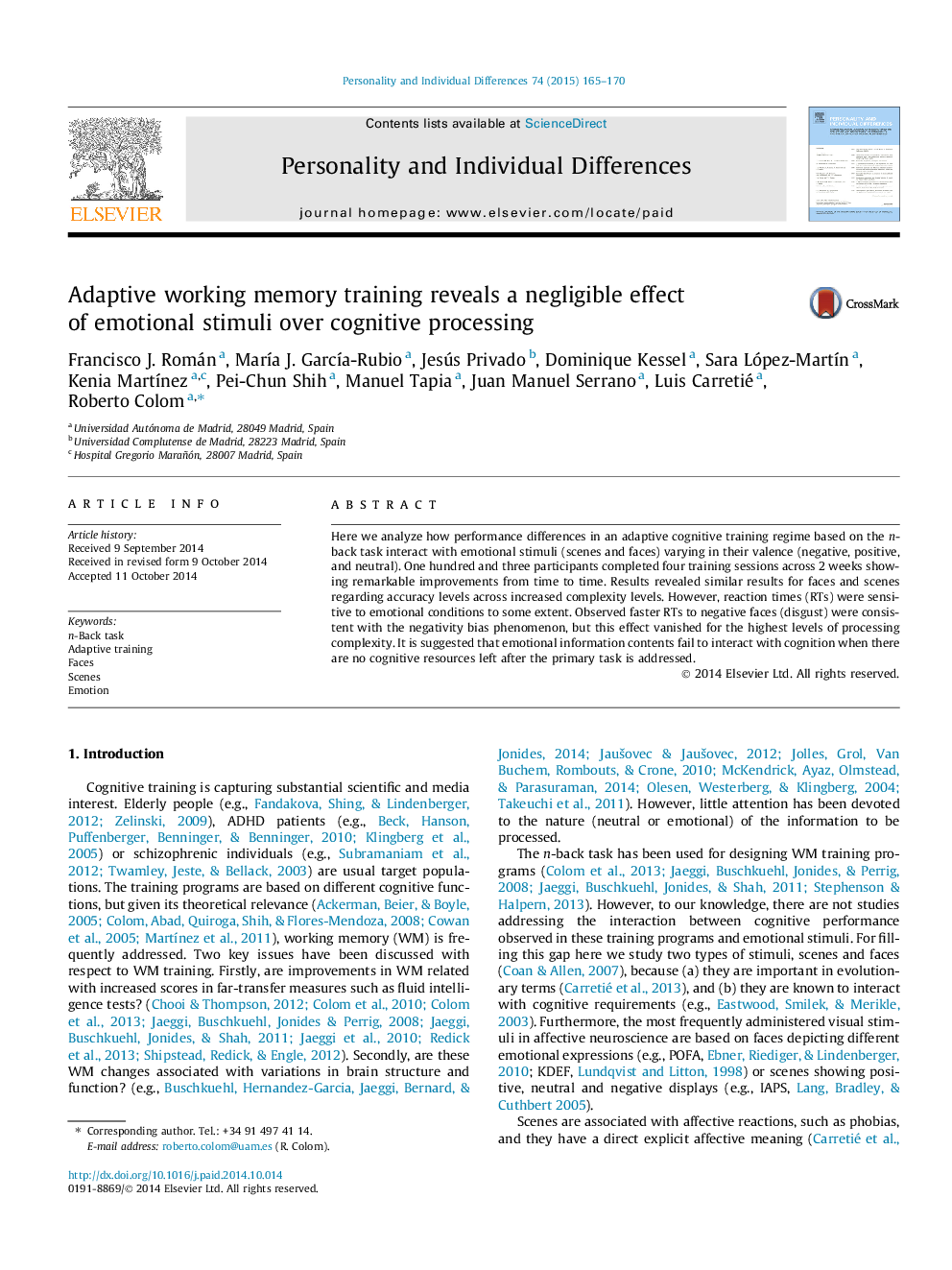| Article ID | Journal | Published Year | Pages | File Type |
|---|---|---|---|---|
| 7251975 | Personality and Individual Differences | 2015 | 6 Pages |
Abstract
Here we analyze how performance differences in an adaptive cognitive training regime based on the n-back task interact with emotional stimuli (scenes and faces) varying in their valence (negative, positive, and neutral). One hundred and three participants completed four training sessions across 2Â weeks showing remarkable improvements from time to time. Results revealed similar results for faces and scenes regarding accuracy levels across increased complexity levels. However, reaction times (RTs) were sensitive to emotional conditions to some extent. Observed faster RTs to negative faces (disgust) were consistent with the negativity bias phenomenon, but this effect vanished for the highest levels of processing complexity. It is suggested that emotional information contents fail to interact with cognition when there are no cognitive resources left after the primary task is addressed.
Related Topics
Life Sciences
Neuroscience
Behavioral Neuroscience
Authors
Francisco J. Román, MarÃa J. GarcÃa-Rubio, Jesús Privado, Dominique Kessel, Sara López-MartÃn, Kenia MartÃnez, Pei-Chun Shih, Manuel Tapia, Juan Manuel Serrano, Luis Carretié, Roberto Colom,
